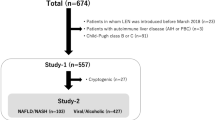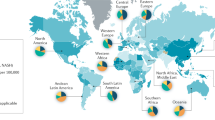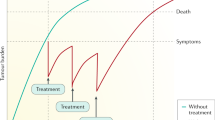Abstract
Hepatocellular carcinoma (HCC) is one of the most common cancers worldwide. The prognosis of HCC is poor and current therapies are largely ineffective. Genetic abnormalities are commonly seen in HCC tumors particularly with inactivation of the p53 tumor suppressor. Gene therapy with E1B-deleted (dl1520) adenovirus could be of therapeutic value as it offers the potential of tumor growth control in patients with p53 mutation. Ten patients with posthepatitis cirrhosis and histologically proven HCC were enrolled into an open label, randomized prospective study. Randomization was to receive either percutaneous ethanol injection (control group) or dl1520. Toxicity and complications in the ethanol group were pain and fever, whereas in the gene therapy group complications were minimal. Grade I–II toxicity fever, stable performance status, and no significant rise in liver enzymes were observed in patients treated with dl1520. Analysis of patients' response to treatment in the gene therapy group showed one patient with a partial response and four patients with progressive disease. In the ethanol-treated group two patients had stable disease and three patients showed disease progression. In conclusion, this study showed that the adenovirus was well tolerated, but did not seem to offer significant tumor control. Although only a small number of patients were treated here it appears that more effective vectors are needed to achieve a useful clinical impact.
This is a preview of subscription content, access via your institution
Access options
Subscribe to this journal
Receive 12 print issues and online access
$259.00 per year
only $21.58 per issue
Buy this article
- Purchase on Springer Link
- Instant access to full article PDF
Prices may be subject to local taxes which are calculated during checkout

Similar content being viewed by others
References
Carr BI, Flickinger JC, Lotze MT . Hepatobiliary cancers In: DeVita BT Jr, Hellman S, editors. Cancer: Principles and Practice of Oncology Philadelphia, PA: JB Lippincott 1987 1087–1114
Caselmann WH . Transactivation of cellular gene expression by hepatitis B viral proteins: a possible molecular mechanism of hepatocarcinogenesis J Hepatol 1995 24: 34–37
Gerber MA . Physiological effects of hepatitis C J Hepatol 1995 22: 83–86
Wang XW, Gibson MK, Vermeulen W et al. Abrogation of p53-induced apoptosis by the hepatitis B virus X gene Cancer 1995 55: 6012–6016
Philosophe B, Greig PD, Hemming AW et al. Surgical management of hepatocellular carcinoma: resection or transplantation? J Gastrointest Surg 1998 2: 21–27
Nagashima I, Hamada C, Naruse K . Surgical resection for small hepatocellular carcinoma Surgery 1996 119: 40–45
Allgaier HP, Deibert P, Becker G et al. Hepatocellular carcinoma: non surgical treatment Schweiz Rundsch Med Prax 1998 87: 1466–1470
Jiao RL, Hansen PD, Havlik R et al. Clinical results of radiofrequency ablation in primary and secondary liver tumours Am J Surg 1999 177: 303–306
Marone G, Franscica G, D'Angelo V et al. Echo-guided radiofrequency percutaneous ablation of hepatocellular carcinoma in cirrhosis using a cooled needle Radiol Med (Torino) 1998 95: 624–629
Weinberg RA . Tumour suppressor genes Science 1991 254: 1138–1146
Bishop JM . The molecular genetics of cancer Science 1987 235: 305–311
Honda K, Sbisa E, Tullo A et al. p53 mutation is a poor prognostic indicator for survival in patients with hepatocellular carcinoma undergoing surgical tumour ablation Br J Cancer 1998 77: 776–782
Bischoff JR, Kirn DH, Williams A et al. An adenovirus mutant that replicates selectively in p53-deficient human tumour cells Science 1996 274: 373–376
Barker DD, Berk AJ . Adenovirus proteins from both E1B reading frames are required for transformation of rodent cells by viral infection and DNA transfection Virology 1987 156: 107–121
Habib NA, Sarraf CE, Mitry RR . E1B deleted adenovirus (dl1520) gene therapy for patients with primary and secondary liver tumours Hum Gene Ther 2001 12: 219–226
Livraghi T, Giorgio A, Marin G et al. Hepatocellular carcinoma and cirrhosis in 746 patients: long-term results of percutaneous ethanol injection Radiology 1995 197: 101–108
Venook A . Treatment of hepatocellular carcinoma: too many options? J Clin Oncol 1994 12: 1323–1334
Kirn D . A phase II trial of intratumoural injection with a selectively replicating adenovirus (ONYX-015) in patients with recurrent, refractory squamous cell carcinoma of the head and neck In: Walter W, Stein U, editors Methods in Molecular Medicine Gene Therapy: Methods and Protocols Totowa, NJ: Humana Press 1999
Swisher SG, Roth JA, Nemunaitis J et al. Adenovirus-mediated p53 gene transfer in advanced non-small-cell cancer J Natl Cancer Inst 1999 91: 763–771
Clayman GL, el Naggar AK, Lippman SM et al. Adenovirus-mediated p53 gene transfer in patients with advanced recurrent head and neck squamous cell carcinoma J Clin Oncol 1998 16: 2221–2232
Sterman DH, Treat J, Litzky LA et al. Adenovirus-mediated herpes simplex virus thymidine kinase/ganciclovir gene therapy in patients with localized malignancy: results of a phase I clinical trial in malignant mesothelioma Hum Gene Ther 1998 9: 1083–1092
Sarraf CE . Electron microscopic assessment of adenovirus-mediated transfer In: Habib NA, editor Hepatocellular Carcinoma: Methods and Protocols Totowa, NJ: Humana Press 2000 199–206
Acknowledgements
We thank Professor Arnold Berk (California) for giving us the dl1520 and the Pedersen Foundation for financially supporting this work. We are grateful to VE Emons for electron microscopy.
Author information
Authors and Affiliations
Corresponding author
Rights and permissions
About this article
Cite this article
Habib, N., Salama, H., Abd El Latif Abu Median, A. et al. Clinical trial of E1B-deleted adenovirus (dl1520) gene therapy for hepatocellular carcinoma. Cancer Gene Ther 9, 254–259 (2002). https://doi.org/10.1038/sj.cgt.7700431
Received:
Published:
Issue Date:
DOI: https://doi.org/10.1038/sj.cgt.7700431
Keywords
This article is cited by
-
Ad5/3 is able to avoid neutralization by binding to erythrocytes and lymphocytes
Cancer Gene Therapy (2021)
-
Transarterial injection of recombinant human type-5 adenovirus H101 in combination with transarterial chemoembolization (TACE) improves overall and progressive-free survival in unresectable hepatocellular carcinoma (HCC)
BMC Cancer (2015)
-
Expression of the coxsackie adenovirus receptor in neuroendocrine lung cancers and its implications for oncolytic adenoviral infection
Cancer Gene Therapy (2013)
-
Clinical development directions in oncolytic viral therapy
Cancer Gene Therapy (2011)
-
Gene therapy of liver cancer: an update
Journal Africain du Cancer / African Journal of Cancer (2011)



